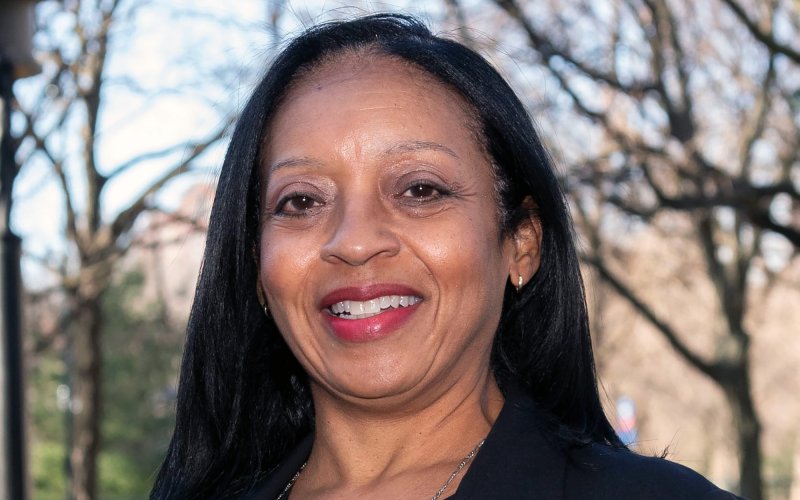5 Questions with Incoming Massry School of Business Dean Paquita Davis-Friday

ALBANY, N.Y. (Jan. 23, 2025) — From executive compensation to corporate governance, incoming Massry School of Business Dean Paquita Davis-Friday has examined some of the most high-profile financial issues of the past 30 years.
As Professor of Accounting at Baruch College’s Zicklin School of Business, Davis-Friday has tackled topics such as clawback provisions in executive compensation contracts, CEO performance at McDonald’s and how institutions can combat implicit bias in accounting education and training. She also previously studied the fallout from the Asian financial crisis of 1997 and how corporate governance affected the valuation of earnings in its wake.
On February 18, Davis-Friday will take the helm at Massry, where she will leverage her experience in developing and expanding undergraduate and graduate business programs in the New York metropolitan area to increase the impact of earning a degree from the University at Albany.
Q: You are coming from Baruch College in New York where you previously served as the interim dean of the Zicklin School of Business. What are the similarities that you see between what Baruch offers students compared to UAlbany?
The primary similarity that I see between Baruch and UAlbany is the commitment to access and excellence. Both institutions have a significant proportion of students who are the first in their families to attend college and who are eligible for Pell and TAP grants. Additionally, both draw students from the New York City metropolitan area. However, the most important thing that Baruch and UAlbany offer students is committed faculty and staff who want to see students achieve their fullest potential.
Q: Given your leadership and teaching experience while working in the financial epicenter of the world, what are some of the opportunities that you see for students from UAlbany who may want to pursue a career in New York following graduation?
The Massry School of Business Dean’s Advisory Board is comprised of dedicated UAlbany alumni who are based in New York City in the financial services industry. I have had the pleasure of meeting several of the members who hire and mentor UAlbany students and support them with scholarships.
In fact, on January 9, I attended a UAlbany women’s networking event hosted by alumnae, Kristin Dolan ’88 and Joan Solotar ’86. The event brought several UAlbany students to New York City to discuss career paths and experiences. The students also had the opportunity to apply for internships with AMC Networks. This is one example of the many opportunities UAlbany students will have to investigate and pursue careers in New York following graduation.
Q: One of your key areas of research has been executive compensation, something that has been closely watched particularly in the wake of the COVID-19 crisis. What are the key lessons that should be learned for businesses as families in the U.S. continue to recover from the impacts of the pandemic and inflation?
In September 2023, the Pay Transparency Act took effect in New York. It requires that all jobs, promotions, or transfer opportunities that will physically be performed in the state of New York include a range of pay when posted. Additionally, since 2018 public companies have been required to disclose the ratio of CEO compensation to that of the median employee.
This information makes it easier for current and potential employees to assess how companies value their people. I think that CEOs and businesses should consider the optics of executive compensation increasing faster than inflation while the wages of the average (median) employee fail to keep pace.
Q: You have also looked at implicit bias in accounting education. How do you think schools, colleges and companies can combat this issue to improve workforce sentiment and enthusiasm?
The research that my co-author, Lee Boyar, and I conducted attempts to make professors and professionals aware of their biases with respect to student and employee development. Awareness is the first step in addressing bias. While we teach these concepts in auditing classes, we do not necessarily think about how they creep into our interactions with students and young professionals.
The research is clear that diverse teams outperform homogeneous teams. Therefore, we should expose students, faculty and staff to diverse perspectives and continue to challenge and question why and how we do what we do.
Q: What excites you most about coming to the Capital Region and are you concerned about the frosty Upstate winters?
I am originally from Detroit, Michigan, so transportation has always interested me. For the move to Albany, I have decided to try an all-electric vehicle. I am excited to learn more about the technology and to try out the chargers in Albany. I am also apprehensive about having to drive every day since I have relied almost exclusively on the subway for the past 15 years. Since I'm from Michigan, I am not too concerned about the weather, however I will wait until spring to ride my bike in Washington Park and along the Hudson River.




